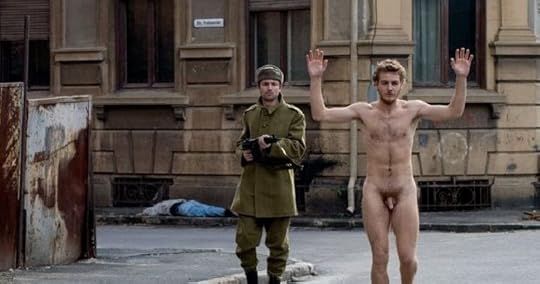What do you think?
Rate this book


206 pages, Paperback
First published January 1, 2007



"If I have to play dead, I told myself, I'm going to do it right. So I lay still, rigid, so rigid, my legs and arms began to ache, and I gritted my teeth as hard as I could. Then I felt a jolt, and I knew they were picking me up. And when they'd raised me in the air, I started laughing and couldn't stop. Maybe it's the same for the dead, I thought, who knows—maybe they wind up laughing, too."